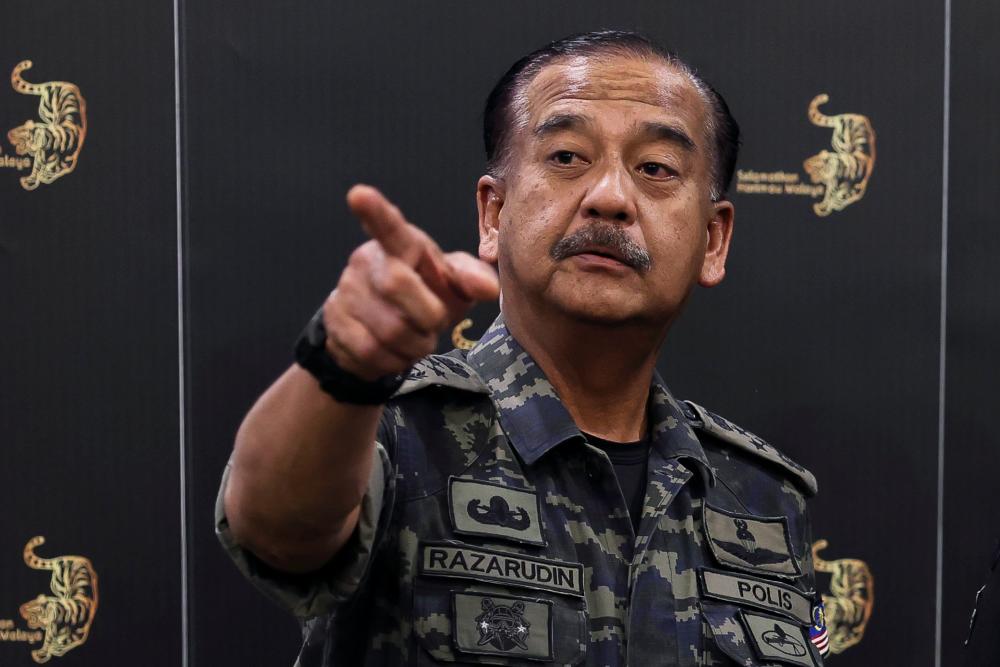KUALA LUMPUR: Inspector-General of Police (IGP) Tan Sri Razarudin Husain filed a RM3 million defamation lawsuit against blogger Wan Muhammad Azri Wan Deris, better known as Papagomo.
Razarudin’s lawyer, Raam Kumar, stated that the notice of the lawsuit was filed on Dec 26 in the Kuala Lumpur High Court through the law firm Messrs K.B. Tan, Kumar & Partners, and confirmed that it was served to Wan Muhammad Azri yesterday afternoon.
“The plaintiff is seeking damages for oral and written defamation. It includes general damages, aggravated or exemplary damages, and special damages,“ he told Bernama when contacted today.
He added that Razarudin is also seeking an injunction to prohibit the defendant, either directly, through his employees or third parties, from making further defamatory statements or causing the republication of the alleged defamatory remarks, which had also mentioned Prime Minister Datuk Seri Anwar Ibrahim.
Additionally, he said the IGP is demanding that all videos, publications, messages, or materials containing the alleged defamatory statements be retracted, deleted, and destroyed.
“The plaintiff is also seeking a public apology and retraction of the defamatory remarks to be published across all the defendant’s social media accounts, mass media, and online platforms, with the content of the apology subject to the plaintiff’s prior approval,” he added.
Meanwhile, Razarudin verified the matter when contacted but declined to comment further.
On Tuesday, the media reported that investigation papers involving Papagomo regarding a video alleging misconduct by the IGP and Royal Malaysia Police (PDRM) were submitted to the Attorney General’s Chambers on Friday.
On Dec 19, Razarudin confirmed that the blogger had provided a statement at the Setapak police station regarding a purportedly defamatory and insulting video targeting the IGP and PDRM on YouTube.
The case is being investigated under Section 14 of the Minor Offences Act, Sections 500 and 504 of the Penal Code, and Section 233 of the Communications and Multimedia Act 1998.









